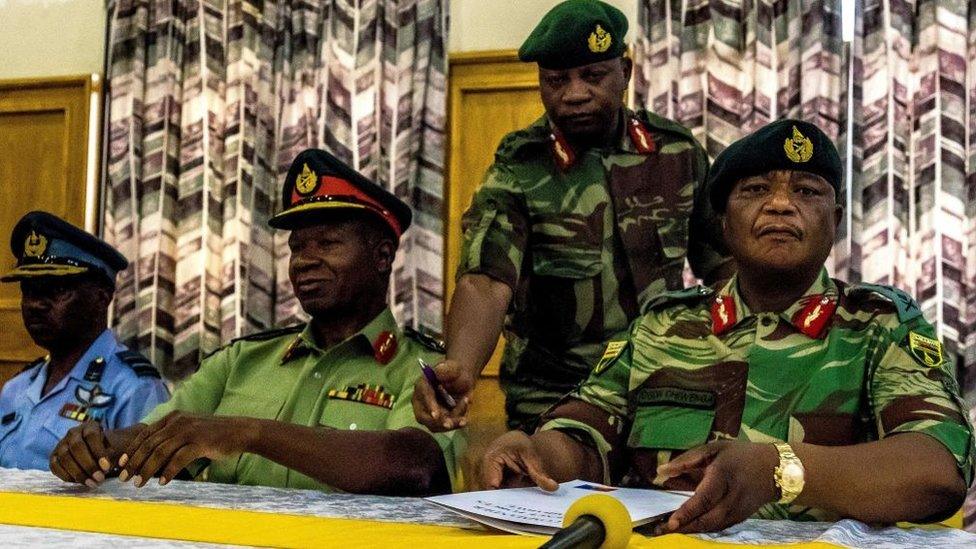Zimbabwe latest: Embattled Mugabe in first public appearance
- Published
Mr Mugabe wore blue and yellow robes and a mortarboard hat
Zimbabwe's President Robert Mugabe has made his first public appearance since the army took over on Wednesday.
He attended a graduation ceremony in the capital, Harare, handing out degrees.
Mr Mugabe had been under house arrest for days. The army made its move after a power struggle over his successor.
The military said on Friday it was "engaging" with Mr Mugabe and would advise the public on the outcome of talks "as soon as possible".
Meanwhile Christopher Mutsvangwa - the leader of the influential war veterans' association, once loyal to Mr Mugabe - said he should step down at once.
He called for a huge turnout in street protests on Saturday.
"We want to restore our pride and tomorrow is the day... we can finish the job which the army started," Mr Mutsvangwa said.
"There's no going back about Mugabe. He must leave."
Liberal groups opposed to the president have also backed the rally.
The leader of last year's #Thisflag protests, Evans Mwarire, urged people to turn up., external
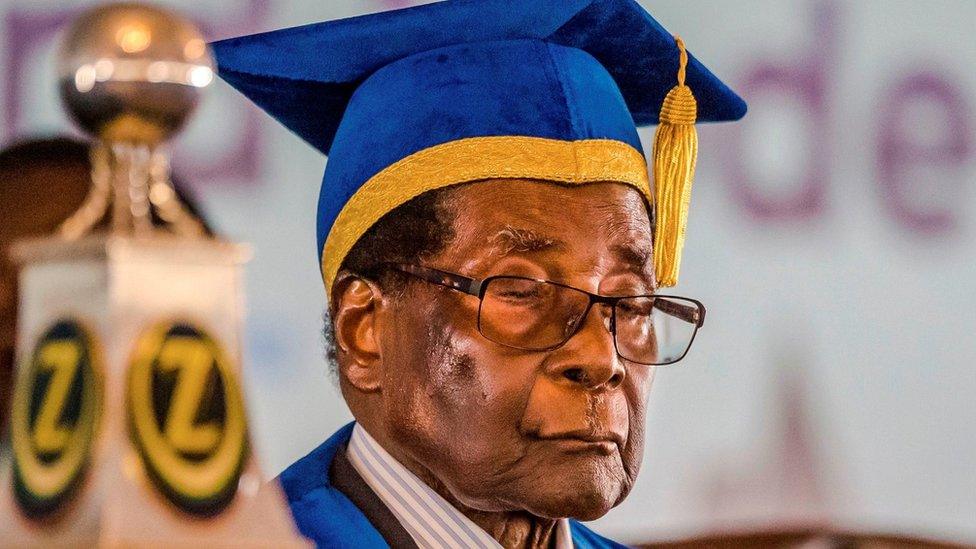
Mr Mugabe is chancellor at the Open University
Mr Mugabe's attendance at the graduation is an annual tradition but he was not expected this year.
BBC Online Africa editor Joseph Winter says he was allowed to be there partly to keep up the pretence that the military have not staged a coup and partly because of a genuine, deeply felt respect for him going back more than 40 years.
Mr Mugabe walked slowly up a red carpet and joined the crowd in singing the national anthem, then opened the graduation ceremony at Zimbabwe's Open University, where he is chancellor.
One of the people he conferred a degree upon was Marry Chiwenga, the wife of the general who detained him on Wednesday, the state broadcaster reports.
Neither the 93-year-old president's wife, Grace Mugabe, nor Education Minister Jonathan Moyo - an ally of hers whose house was reportedly raided by the military - were present.
The army acted after Mr Mugabe sacked Vice-President Emmerson Mnangagwa last week.
Mr Mnangagwa was seen as a potential successor and his sacking was supposed to have paved the way for Grace Mugabe - who is four decades younger than him - to take over the presidency instead.
Who is Grace Mugabe?
It was thought she had left the country but it emerged on Thursday that she was at home with Mr Mugabe.

Uneasy calm in Mugabe's village
By Stanley Kwenda, BBC News, Kutama
To get to President Robert Mugabe's rural home you drive along the Robert Mugabe highway.
It's probably one of the best maintained roads in Zimbabwe, like driving on a carpet. Along the way you are greeted by a plaque erected in his honour.
Kutama is a small and tightly connected village where everyone knows each other.
You can't really tell if they've been rattled by the current political crisis. As we arrived there was an air of uncertainty. Mr Mugabe is respected here - to many he's a father and a friend. A 65-year-old neighbour of his told me: "He's kind, he's a good man and he understands people's plight."
The man goes to St Francis Xavier Roman Catholic Church with Mr Mugabe, a devout Christian, whenever he visits.
"He never demands special treatment. He visits people to check on their welfare," said the man at his compound.
He said he supports the move by the army saying it's meant to correct a broken system.
"If his term goes out then there's nothing wrong," he said.

How did we get here?
Military vehicles were spotted on roads leading to the Zimbabwean capital Harare on Tuesday, sparking rumours that something was afoot.
Later, soldiers seized the headquarters of Zimbabwe's national broadcaster ZBC and loud explosions and gunfire were heard.
Major General Sibusiso Moyo then read out a statement on national television, assuring the nation that President Mugabe and his family were safe.
The military was only targeting what he called "criminals" around the president, he said, denying that there had been a coup.
On Thursday Mr Mugabe was pictured smiling as he took part in talks with an army general and South African government ministers at State House but sources suggested he might be resisting pressure to resign.

What's the reaction in the country?
Zimbabweans have been posting on Facebook and Twitter that there has been no dramatic effect on normal life.
People say that shops have opened as normal but there are few people on the streets of the capital.
Some Zimbabweans spoken to by the BBC have welcomed the news, with one man expressing his thanks to the army for "taking out the tyrant".
Zimbabweans react to the news that troops had taken control

What has the reaction been across the World?
US Secretary of State Rex Tillerson urged a quick return to civilian rule, but also said the crisis was an opportunity for Zimbabwe to set itself on a new path that includes democratic elections and respect for human rights
Chinese foreign ministry spokesman Geng Shuang said Beijing was hoping for stability and a peaceful "appropriate" resolution
UK Foreign Secretary Boris Johnson said he hoped things would improve but also warned against a transition from "one unelected tyrant" to another
Botswana's President Ian Khama told Reuters news agency that regional leaders did not support Mr Mugabe staying in power, adding: "We are presidents, we are not monarchs"
Alpha Conde, the chairman of the African Union, a key regional bloc, said the takeover "seems like a coup" and demanded a return to constitutional order
- Published17 November 2017
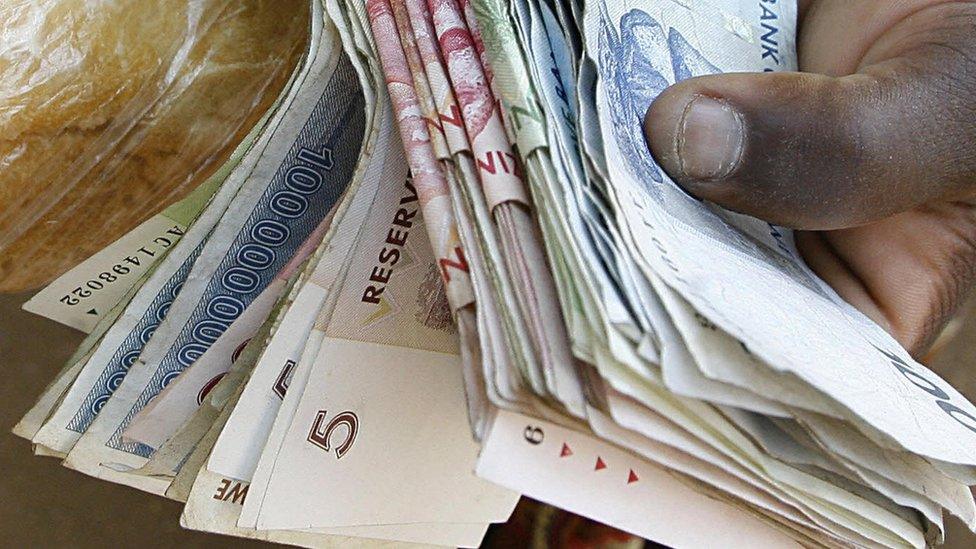
- Published21 November 2017
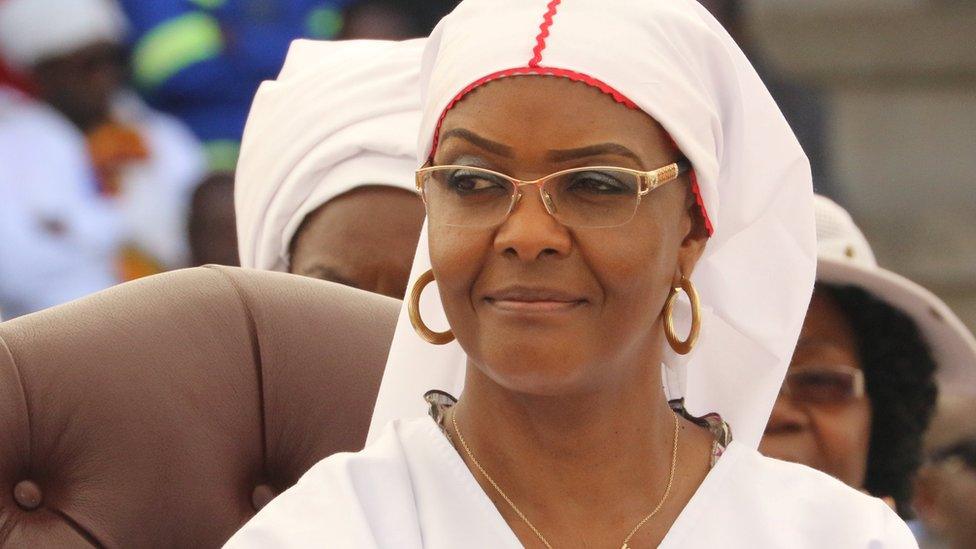
- Published17 November 2017
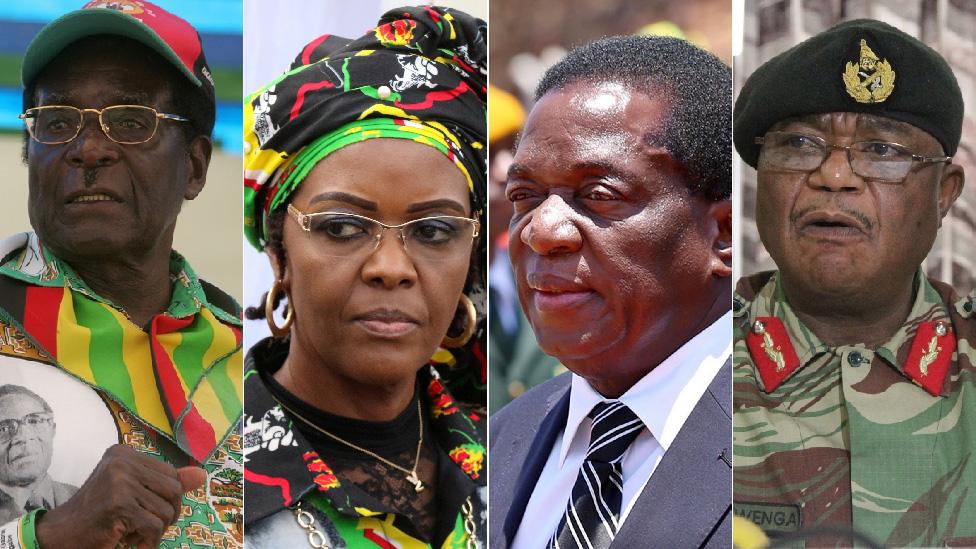
- Published19 November 2017
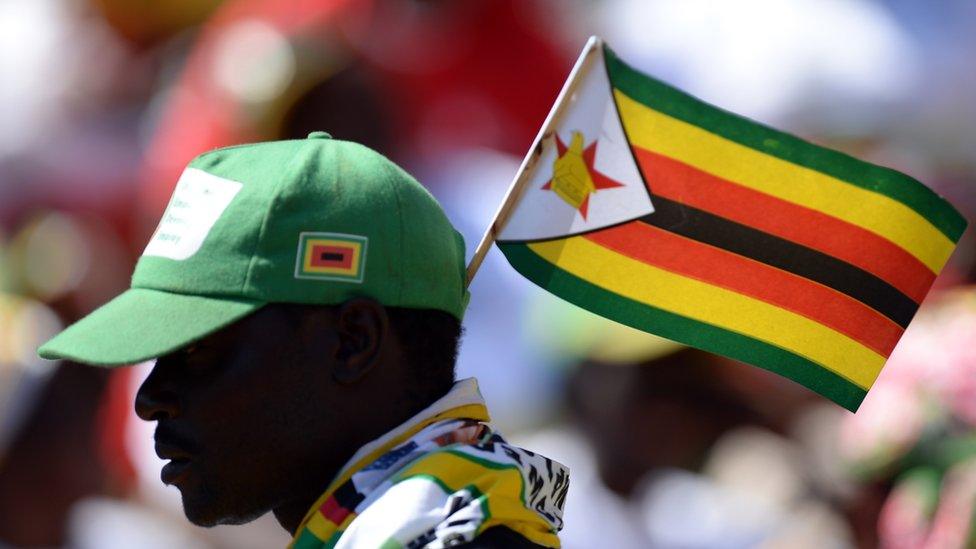
- Published20 November 2017
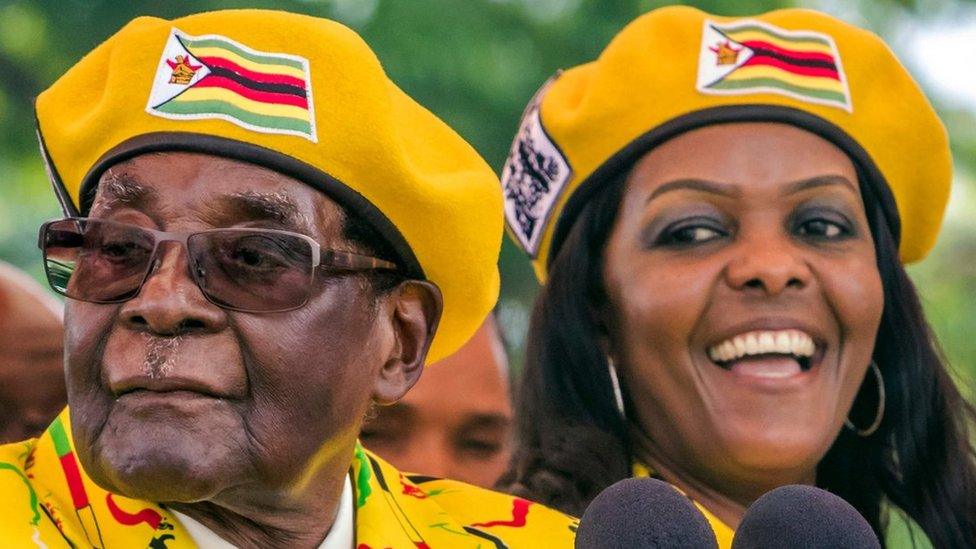
- Published21 November 2017
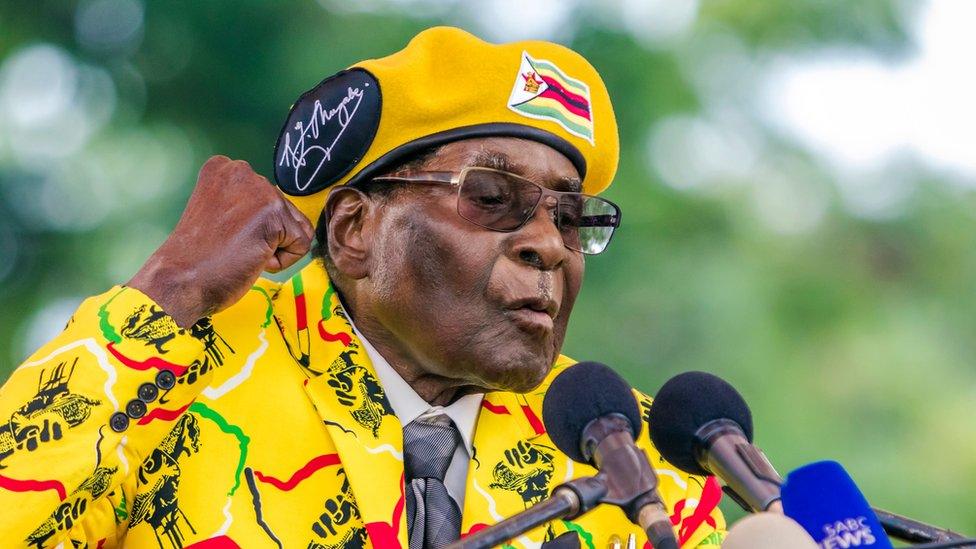
- Published19 November 2017
